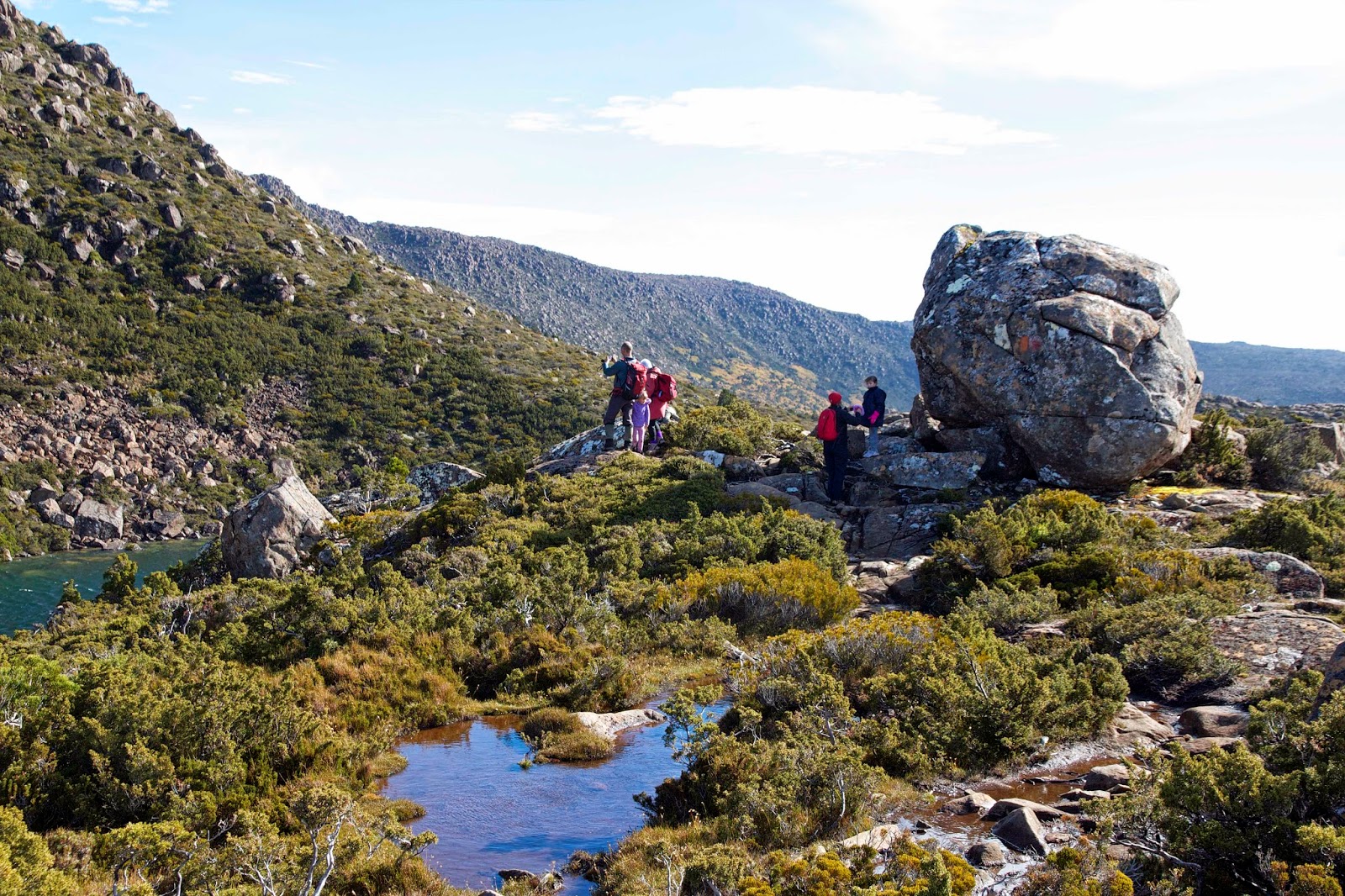 |
[Snow play on kunanyi/Mt Wellington] |
A Childhood Scene
It starts with watching twigs wash down a rain-filled
gutter. Next we’re inventing our own version of pooh sticks, damming up the flow with mud and leaves, crafting ice
cream sticks into boats, then breaching the dam and cheering on our sticks in
their rush towards the stormwater drain.
 |
[Starting early: toddlers learn by interacting with the world] |
From there it’s a logical leap to head for the creek, where
surely the thrill of a greater flow will multiply our fun. And so one rainy day
we’re clambering over my friend’s back fence and slipping down to the creek.
The rain has been steady all day, but a heavy thunderstorm seems to have
brought it to an end. There’s even a hint of sunshine.
We’re expecting a good flow – that’s why we’ve chosen a wet
day – but as we get down to the creek we’re distracted looking for good racing
“boats”. Everything is sodden, from the squelching, fragrant leaves of the
eucalypts and turpentines to their dripping trunks.
 |
[Creek play: chucking a rock, of course!] |
As the two of us search through piles of wet sticks for
something dry enough to float, we hear a sound that’s out-of-place. How can
wind be roaring in the trees when the air is still? Besides this has a deeper,
growling edge. We suddenly realise it’s coming from the creek, only metres from us. Just upstream we see a brown, frothing, debris-filled torrent rushing
towards us. It’s a flash flood.
We quickly clamber to a safer spot, then stand wide-eyed
watching our quiet neighbourhood creek transformed into something capable of
killing us. Still, we’re more excited than afraid. Although we’re no more than
11 or 12 years old, we do know how to take care of ourselves.
We’ve been rambling this bush all of our short lives. We
know where the tracks and short-cuts are; know not to drink the creek water; know
about snakes and spiders; know which trees are okay to climb and which aren’t;
which plants scratch the worst; which neighbourhood kids we need to avoid.
* * *
 |
[All senses engaged: Russell Falls Track, Mt Field NP] |
Many pooh sticks
have bobbed down the creek since that day, and many things in everyday life
have changed forever. It’s enough to make me wonder, on reflection, were my
friend and I in serious danger that day? Was our bush in general a dangerous
place?
If I had to answer “yes or no”, I would say “yes”. Playing
in the bush has its dangers. But after that admission I would have to add a
series of hefty “howevers”.
 |
[Three generations of walkers on Tarn Shelf, Mt Field NP] |
Here are some of my "howevers":
·
Many studies show that being out in nature is
good for us [1]
·
Nature play boosts creativity, imagination and
problem-solving abilities [2]
·
We learn through doing as well as thinking;
through our bodies as well as our minds
·
We are part of the natural world, not distinct
from it
·
Staying inside can lead to over-eating and
obesity [3]
·
Device addiction is a real risk [4]
·
Divorce from nature is bad for us, and bad for
nature [5]
·
It is no bad thing to be dwarfed, even a little
intimidated, by nature
·
Risk is inherent to life, no matter where and
how we live it
So it’s not enough to simply say children playing in nature
is a good idea. We need to positively promote such connection with nature. If
that sounds counter to our culture, it probably is. If it sounds onerous, it’s actually child's play! Look at this list, created by Nature Play SA. It’s enough to make
me me want to have my childhood all over again.
 |
[with acknowledgement to Nature Play SA] |
[1] See, for instance
www.childrenandnature.org/downloads/C&NNHealthBenefits2012.pdf
[2] See also www.childrenandnature.org/downloads/C&NNHealthBenefits2012.pdf
[3] for a light-hearted take on
this, see
http://www.brisbanetimes.com.au/comment/its-your-fault-your-kids-are-fat-20140529-zrqxk.html
[4] http://www.huffingtonpost.com/cris-rowan/10-reasons-why-handheld-devices-should-be-banned_b_4899218.html
[5] “If kids don’t have some
kind of connection to nature that is hands-on and independent, then they are
probably not going to develop the love of nature and vote for parks and the
preservation of endangered species … Unless you know something you are unlikely
to love it.” Richard Louv, author of Last
Child in the Woods.
No comments:
Post a Comment